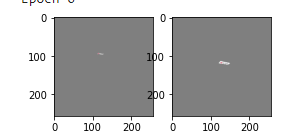I have 2 small images. They are basically the same, but differ in rotation and size. I should estimate the parameters for affine transform to get them similar. What network structure can be suitable for this task? For example, those based on convolutional networks did badly, because the pictures are too small.
-
$\begingroup$ Of they are exactly the same and differ by affine transform you don't need NNs. If they are similar I think any NNs would do (try using relu) though. $\endgroup$– user9947Commented Jan 7, 2021 at 13:42
-
$\begingroup$ Does it have to be with NNs or do you want to use image processing tools $\endgroup$– EnesCommented Jan 7, 2021 at 15:42
2 Answers
Instead of NNs, you can use RANSAC algorithm to calculate homography matrix, but first you need to find feature points. However, if your images are blob-like, you may not get such a successful results. Here some presentations for better understanding: cs.umd notes and csail.mit notes
(Also, there might be better image processing tools.)
Just use IMGAug library for Applying the 'zoom' augmentation on the images and a convnet (or even MLP) would have no problem in this task. Zooming on the image would be more than enough to use as, as long as your zoom is of sufficient power.
So apply "zoom" of the same factor on all images, make them bigger, and Convolutional Neural Networks would do fine. Also, If color is not an important feature, then you would be better off rescaling images b/w 0 and 1 and making them GrayScale
